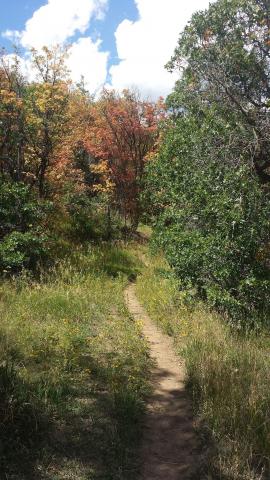
Lee, Hatch Introduce the Utah National Monument Parity Act
WASHINGTON - Sens. Mike Lee (R-UT) and Orrin Hatch (R-UT) introduced the Utah National Monument Parity Act, Tuesday, a bill that would extend the same Antiquities Act protections Wyoming now enjoys to Utah.
“New Yorkers would not appreciate it if Utahns came in and told them what they could and couldn’t build in Manhattan,” Sen. Lee said, “and Utahns don’t like it when out of state special interest groups tell us how to use our land either. Over 50 years ago the state of Wyoming was granted protections from Antiquities Act abuse in their state, and all Utahns are asking is for that same protection to be extended to their state,” Lee finished.
Senator Hatch added, “Nearly twenty years ago, the Clinton administration blindsided Utah with a massive 1.9-million-acre monument designation in Southern Utah. With this unilateral action, the President defied the will of Utah’s elected representatives and a strong majority of the state’s residents. Today, we are again faced with the threat of a unilateral designation of another 1.8-million-acre monument in southeast Utah. Such a designation would far exceed the purpose of the Antiquities Act, which was written specifically to protect special cultural sites and objects limited to the smallest compatible area necessary. If the Obama administration insists on such an overreach of its Antiquities Act authority to lock away massive swaths of land in Utah again—over the strong objections of both Utah’s elected leaders and the affected communities—then Congress must be prepared to act as a responsible check on executive authority.”
First enacted in 1906, the Antiquities Act was originally used to protect archeological sites and Native American structures from looting and vandalism. The act specifically requires that lands designated as national monuments under the act must be “confined to the smallest area compatible with the proper care and management of the objects to be protected.”
Unfortunately the Antiquities Act has since become the preferred vehicle for imposing executive branch vanity projects on unsupportive local communities. In 1950, after President Franklin Roosevelt created the Jackson Hole National Monument, Congress enacted a law prohibiting future Antiquities Act designations in Wyoming. The people of Utah are only asking that those same protections be extended to their state.
Our national parks and wilderness areas are national treasures. But those land use designations came through the compromise and collaboration with local communities that are necessary in a democratic process. House Natural Resources Committee Chairman Rob Bishop (R-UT) has gone through that process and written a bill, that Public Lands Initiative, that would protect the natural and historic treasures of southeast Utah. A unilateral Antiquities Act designation by the White House would only shut off debate and circumvent that democratic process.
A digital version of this release is available here.
--------------------
Senators Introduce Bipartisan Modern Government Travel Act
WASHINGTON - Sens. Mike Lee (R-UT), Bill Cassidy (R-LA), Tom Carper (D-DE), Ron Johnson (R-WI), and Cory Booker (D-NJ) introduced the Modernizing Government Travel Act Thursday, a bill that would direct the General Services Administration to make it easier for government employees to save taxpayers money by using innovative modes of travel while on official government business.
“Millions of Americans have saved themselves time and money by using new innovative travel services such as Uber, Lyft, and bikeshare,” Sen. Lee said, “but current federal travel reimbursement regulations have made it difficult for federal employees to use these new technologies while on the job. This bill would require the GSA to clarify the availability of these options so our federal employees can increase efficiency and decrease costs.”
“It makes sense for government employees to use the same services as everyday people and it will save the taxpayers dollars,” said Dr. Cassidy.
“Services like Lyft and Uber have improved the ways that millions of Americans get around, but, until recently, the federal government hasn’t been able to take advantage of these newer, sometimes more cost-effective options,” said Sen. Carper. “This legislation will help our government keep pace with the innovative technologies that drive our lives. By modernizing the way that federal employees travel, this commonsense and bipartisan bill will make the operations of government more efficient, while also ensuring that we are being good stewards of taxpayer dollars.”
“This legislation helps drive federal agencies into the modern era,” said Sen. Johnson. “All across the country, people are using car services such as Uber and Lyft to get where they need to go conveniently and affordably. Many Americans are even supplementing their current income by driving for these companies. I’m proud to cosponsor this legislation, which will provide an option for federal employees to take Uber or Lyft when they’re on official business, saving taxpayer money.”
“I am pleased to join Senator Lee and Senator Carper to introduce common sense legislation that ensures the federal government updates its policies to keep pace with innovation and better reflect how people travel today,” said Sen. Booker. “Government employees should be able to take advantage of cost-effective ridesharing services and save taxpayer dollars.”
A digital version of this release is available here.